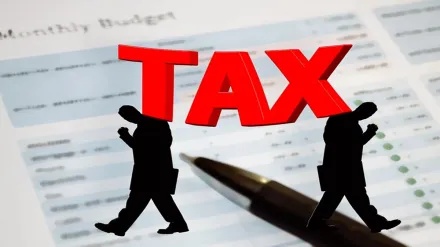
Tax Exemption Expansion for Unified Pension Scheme Subscribers
Central government employees enrolled in the Unified Pension Scheme (UPS) are set to benefit from significant tax reforms introduced through the Taxation Laws (Amendment) Bill, 2025. Finance Minister Nirmala Sitharaman’s announcement in the Lok Sabha marks a pivotal shift in pension policy, aligning UPS with the National Pension System (NPS) in terms of tax treatment. The amendment ensures that 60% of the retirement corpus received by UPS subscribers will be exempt from taxation, mirroring the existing benefits under NPS. This change also extends to lump sum payments based on service tenure, which will now be fully tax-free. The new provisions aim to alleviate the financial burden on retirees by allowing them to retain a larger portion of their pension savings, enhancing their post-retirement financial security.
Understanding the Unified Pension Scheme and Its Tax Implications
Launched on April 1, 2025, the Unified Pension Scheme was designed to streamline and integrate the fragmented pension systems for government employees. Unlike the traditional pension model, UPS offers a combination of a fixed monthly pension and investment flexibility akin to NPS. The recent tax amendment ensures that UPS subscribers now enjoy the same tax advantages as NPS participants. Previously, UPS recipients faced higher tax liabilities at retirement, which could erode their savings. The new rules, effective from the implementation of the amendment, will apply to all UPS subscribers, providing them with a more favorable tax structure. This adjustment is expected to encourage longer participation in the pension scheme, ensuring better financial planning for retirees.
Strategic Alignment with National Pension System Framework
The government’s decision to align UPS with NPS reflects a broader strategy to create a unified and efficient pension framework. The amendment explicitly states that tax benefits under NPS will apply ‘mutatis mutandis’ to UPS, ensuring parity between the two schemes. This move is particularly significant for central government employees, as it reduces the tax burden on their retirement income while maintaining the flexibility of investment options. The Department of Financial Services has issued detailed notifications outlining the specific tax exemption thresholds, which will be applied at the time of superannuation or voluntary retirement. By integrating UPS with NPS, the government aims to simplify administrative processes and enhance the overall appeal of pension schemes for public sector employees.
Financial Security and Long-Term Benefits for Retirees
The tax reforms under the UPS amendment are poised to deliver substantial long-term benefits for retiring government employees. By exempting 60% of the retirement corpus from taxation, retirees can retain a larger portion of their savings, which can be strategically invested for additional growth. The lump sum payments based on service tenure, previously taxed, are now fully exempt, further boosting the financial cushion for retirees. This change is expected to encourage employees to remain in the pension scheme for longer, ensuring a more stable income stream during retirement. The government emphasizes that these adjustments will not only reduce immediate tax liabilities but also foster a culture of long-term financial planning among public sector workers.
Government’s Vision for Pension System Modernization
The introduction of the Taxation Laws (Amendment) Bill, 2025, underscores the government’s commitment to modernizing the pension system and enhancing employee benefits. By aligning UPS with NPS, the administration aims to create a more equitable and sustainable pension framework. This initiative is part of broader efforts to improve financial security for public sector employees, ensuring they can enjoy a comfortable retirement. The amendment also reflects the government’s recognition of the evolving needs of retirees, who require flexible and tax-advantaged options to manage their post-retirement finances. As the UPS and NPS frameworks continue to evolve, these changes are expected to set a precedent for future pension reforms, benefiting millions of government employees across the country.




